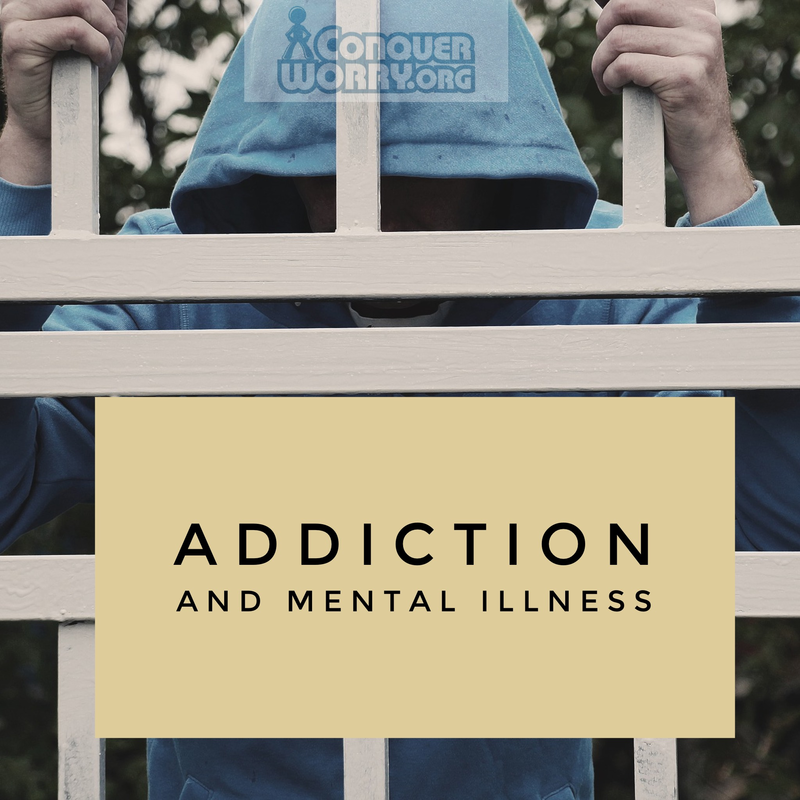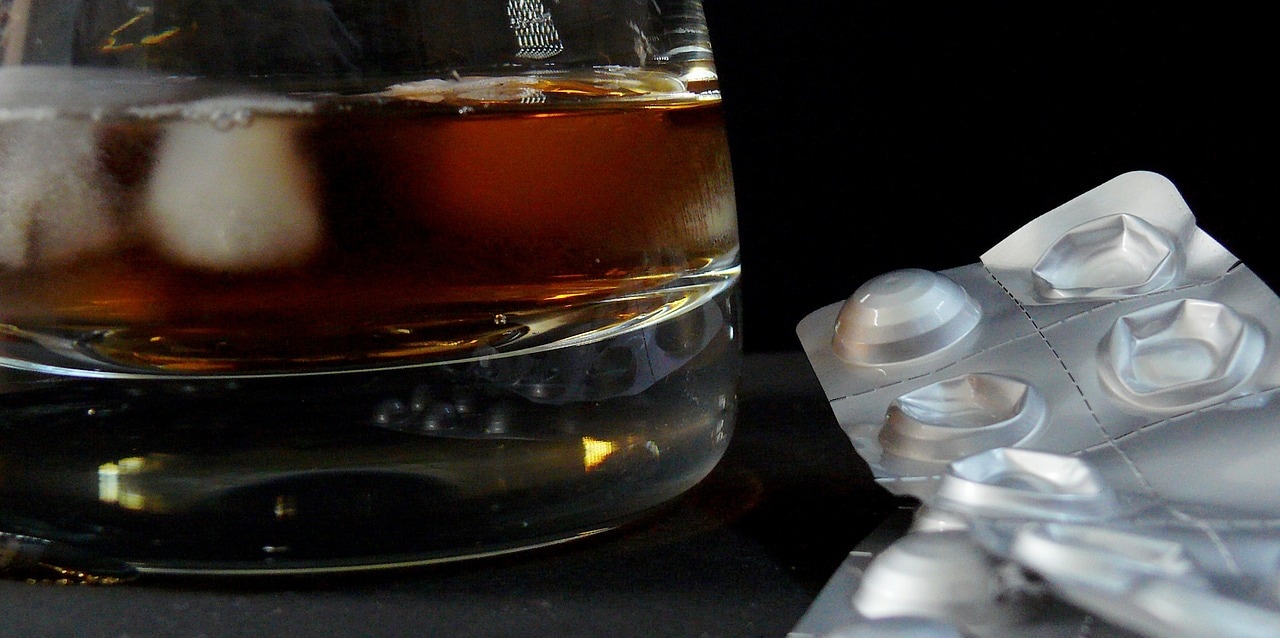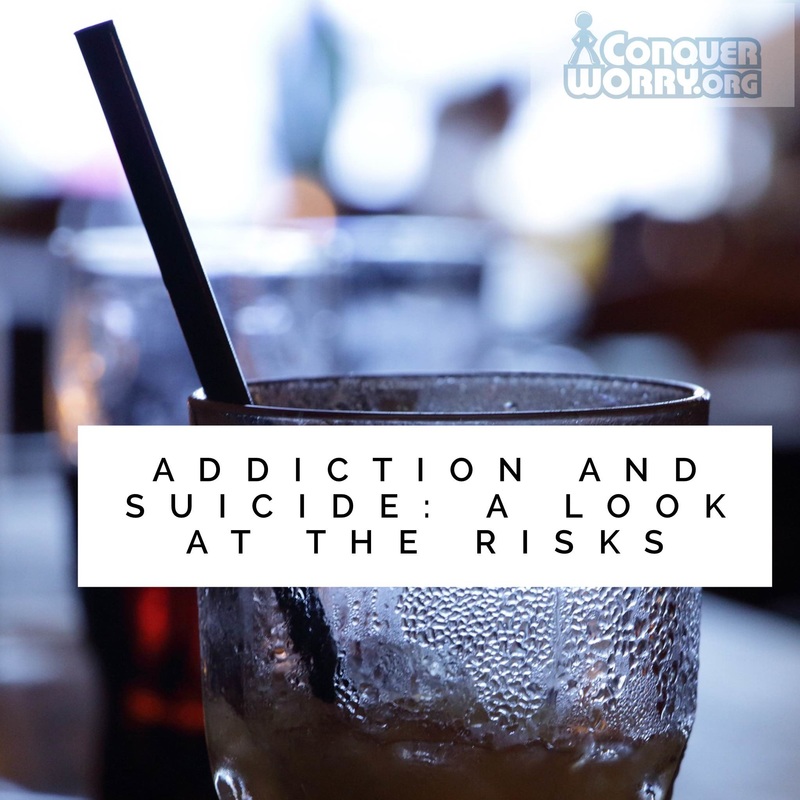|
Article by Matt Gonzales Edit and post design by Christy Zigweid Photo by lechenie-narkomanii via Pixabay made using @WordSwagApp Drug or alcohol addiction impacts lives. It can fracture a person’s relationships, affect his or her academic or job performance, and put the individual’s health at risk. Substance abuse can weaken a person’s immune system or cause seizures, stroke, or brain damage. Addiction can also lead to the development of mental illness, such as anxiety or depression. Mental diseases affect the way an individual thinks and his or her behavioral patterns. Some mental disorders, such as panic disorder, are rooted in anxiety. Other mental disorders, such as post-traumatic stress disorder, involve unwanted, intrusive thoughts. Nearly 44 million U.S. adults experience mental illness in a given year, according to the National Alliance on Mental Illness (NAMI). About 13.6 million adults in the United States live with a serious mental illness. According to NAMI: 18.1 percent of U.S. adults live with an anxiety disorder About 20 percent of Americans with an anxiety or mood disorder have a substance use disorder, according to the Anxiety and Depression Association of America. Conversely, about 20 percent of those with addiction have an anxiety or mood disorder. Mental disorders can lead to drug or alcohol addiction, as well. Men are more likely than women to develop a co-occurring disorder. People of lower socioeconomic status, military veterans, and individuals with general medical illnesses are also at risk for developing a co-occurring disorder. People with mental illness often use drugs or alcohol to self-medicate. However, substance abuse can worsen symptoms of mental illness and trigger new symptoms. Self-medication can also lead to addiction. A 2010 study published in the journal Current Drug Safety outlined the consequences of self-medication. Individuals who self-medicate may self-diagnose incorrectly, fail to seek medical help, or take a dangerous amount of the substance. People self-medicate using drugs or alcohol to numb physical or emotional pain. For example, someone with anxiety may discover that a few drinks and some marijuana take the edge off in social situations. But the more an individual uses these substances to manage stress, the less able he or she is to cope in healthy ways. Substance abuse is common among people with social anxiety disorder, a mental illness characterized by an extreme fear of being scrutinized or judged in social or performance situations. Drinking in social situations may reduce anxiety, but it can also result in alcohol abuse. PTSD and substance abuse also frequently occur together. People with PTSD often use drugs or alcohol to alleviate emotional pain. However, these substances have shown to worsen PTSD symptoms. Many mental health professionals treat PTSD and substance abuse together because symptoms of this mental illness can lead to relapse. Those with co-occurring disorders should seek treatment immediately. Rehab centers across the United States offer a continuum of care catered to each individual’s needs. People who have completed treatment and are in recovery go on to live healthy lives while maintaining successful careers. SourcesAnxiety and Depression Association of America. (2016, June). Social Anxiety Disorder. Retrieved from https://www.adaa.org/understanding-anxiety/social-anxiety-disorder Anxiety and Depression Association of America. (n.d.). Substance Use Disorders. Retrieved from https://www.adaa.org/understanding-anxiety/related-illnesses/substance-abuse Dayton, T. (2013, July 9). Why We ‘Self-Medicate’ Our Own Depression or Anxiety. Retrieved from http://www.huffingtonpost.com/dr-tian-dayton/self-medication_b_3236724.html National Alliance on Mental Illness. (n.d.). Dual Diagnosis. Retrieved from http://www.nami.org/Learn-More/Mental-Health-Conditions/Related-Conditions/Dual-Diagnosis National Alliance on Mental Illness. (n.d.). Drugs, Alcohol and Smoking. Retrieved from http://www.nami.org/Find-Support/Living-with-a-Mental-Health-Condition/Taking-Care-of-Your-Body/Drugs,-Alcohol-Smoking National Alliance on Mental Illness. (n.d.). Mental Health Facts In America. Retrieved from https://www.nami.org/getattachment/Learn-More/Mental-Health-By-the-Numbers/General-MH-Facts-4-12-15.pdf National Council on Alcoholism and Drug Dependence Inc. (2015, July 25). Alcoholism, Drug Dependence and Co-Occurring Disorders. Retrieved from https://www.ncadd.org/about-addiction/signs-and-symptoms/co-occurring-disorders Ruiz, M.E. (2010, October). Risks of self-medication practices. Retrieved from https://www.ncbi.nlm.nih.gov/pubmed/20615179 Substance Abuse and Mental Health Services Administration. (2016, March 8). Mental and Substance Use Disorders. Retrieved from http://www.samhsa.gov/disorders About the AuthorMatt Gonzales is a writer and researcher for DrugRehab.com. He boasts several years of experience writing for a daily publication, multiple weekly journals, a quarterly magazine and various online platforms. He has a bachelor’s degree in communication, with a Journalism concentration, from East Carolina University. Follow him on Twitter.
0 Comments
Guest post by Michelle Peterson Edit and Blog Post Design by Christy Zigweid Photo by karosieben via Pixabay made using @WordSwagApp Addiction comes with many risks, including impulsive or dangerous behavior, health issues, and overdose, but many fail to realize how a serious addiction can have a fatal chain reaction that could lead to suicide. The link between addiction and suicide is a strong one, according to many studies done over the years. One such study showed that the strongest predictor of suicide is alcoholism, a disease which carries depression along with it; either alcohol exacerbates symptoms of depression that were already present, or it has a dark effect on moods and can lead to isolation, violence, or a slow decline in the individual’s ability to function daily. For some, substance abuse is a way to self-treat depression, anxiety, stress, or emotional pain from big life changes, such as a divorce or death in the family. It may be the only thing that helps the individual sleep or cope with everyday events, but the truth is, drugs and alcohol are only making things worse behind the scenes. It’s estimated that the suicide rate among those who suffer from substance abuse issues is as high as 45%, yet it’s still difficult for many people to start the conversation with a loved one who is at risk, in part because the subject is so taboo in our society. We are afraid to bring up the word “suicide” for fear that it will be suggestive, or that it will offend the individual at risk. Another issue is that not everyone knows what to look for. Even trained professionals may have a hard time diagnosing someone with a substance abuse problem--or with depression--and establishing a safe place for the individual to talk openly about their feelings. Photo via Pixabay by Unsplash Although warning signs of addiction can vary from person to person, there is a general list to be on the lookout for. It can be especially difficult to differentiate between warning signs and typical changes in mood and behavior when a teenager is concerned, so be aware that if you think these signs are present in a loved one, it’s important to talk to them about it before you make assumptions. Bringing up your concerns won’t put ideas into their head about suicide; if they were already thinking about self-harm, however, having the word out in the open could be enormously helpful in moving toward a healthy path. Some of the most common signs include:
In talking to a loved one about your concerns, one of the most important things to remember is not to introduce guilt. Being judgmental will only make the individual feel worse, and it’s likely that if they do have a substance abuse problem or are having thoughts of suicide, they already suffer from low self-esteem or feel isolated. Let them know that they are not alone, and listen with a sympathetic ear. Statements such as “I’m so sorry you’ve been feeling that way” are particularly effective. If your loved one admits there is a problem but doesn’t feel comfortable talking to you about it, that’s okay. You can still offer to help them find a counselor, group therapy, or healthcare professional to aid them in recovery. If you feel self-harm is an immediate danger, don’t leave the individual alone. Stay with them and call for help, and, if possible, remove any items that could be used as weapons or cause injury from the area. If you are having thoughts of suicide, please call 911 or the National Suicide Prevention Lifeline at 1-800-273- (TALK) 8255 About the Author Michelle Peterson has been in recovery for several years. She started RecoveryPride.org to help eliminate the stigma placed on those who struggle with addiction. The site emphasizes that the journey to sobriety should not be one of shame but of pride and offers stories, victories, and other information to give hope and help to those in recovery.
|
Build Your Action Based Stress Reduction System
Popular PodcastsOlympian Suzy Favor Hamilton - From Fame to Prostitution to Advocacy
Hall of Fame Basketball Star Chamique Holdsclaw on Mental Resilience Diana Nightingale on her husband Earl Nightingale's Principles for Mental Health Success JoAnn Buttaro on Date Rape & PTSD Survival Story: Its Never Too Late Gabe Howard on BiPolar Advocacy Phil Fulmer on Teen Suicide Prison, Bipolar and Mania with Andy Behrman Columbia Univeristy's Dr. Rynn on OCD Archives
March 2018
Categories
All
|






 RSS Feed
RSS Feed





